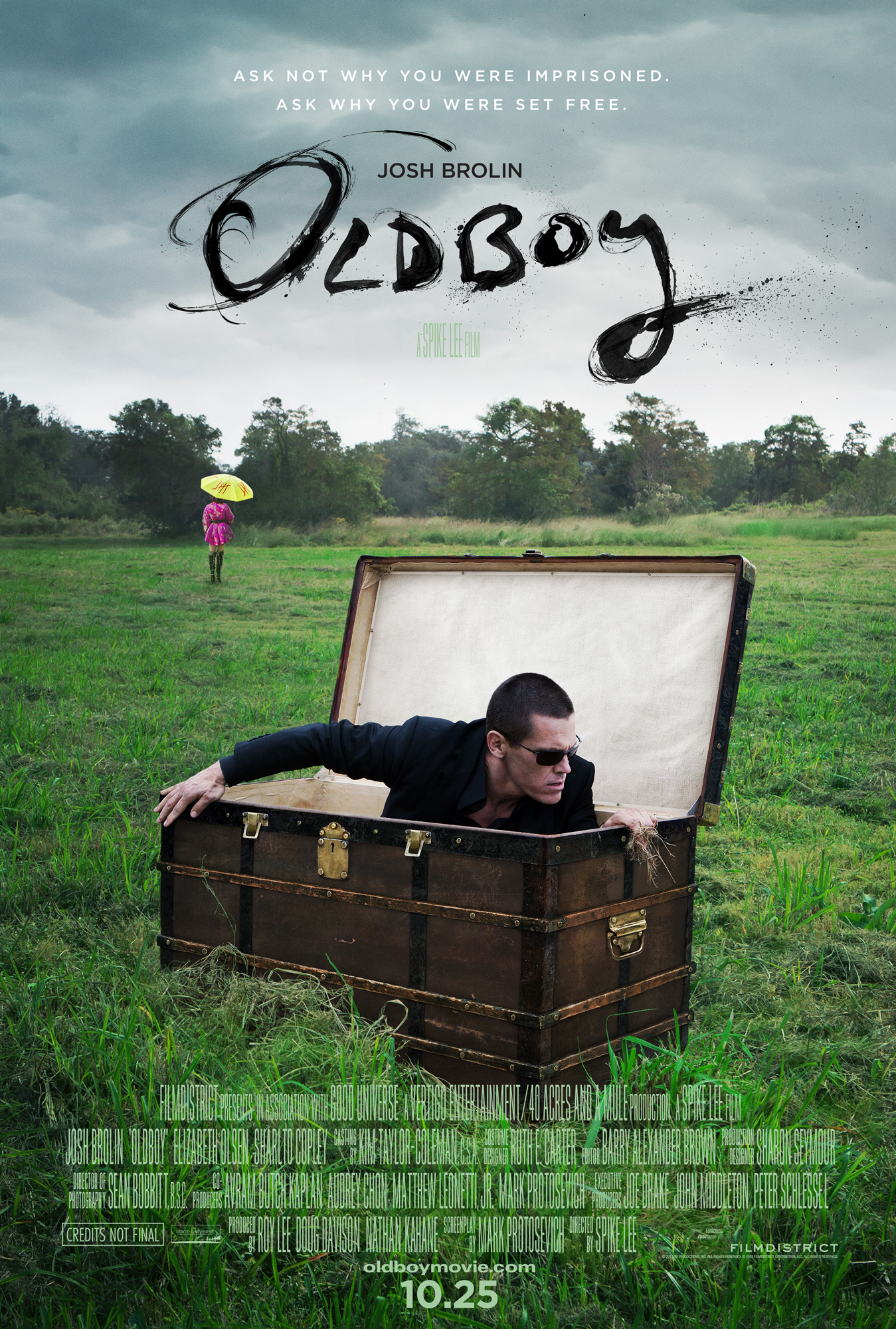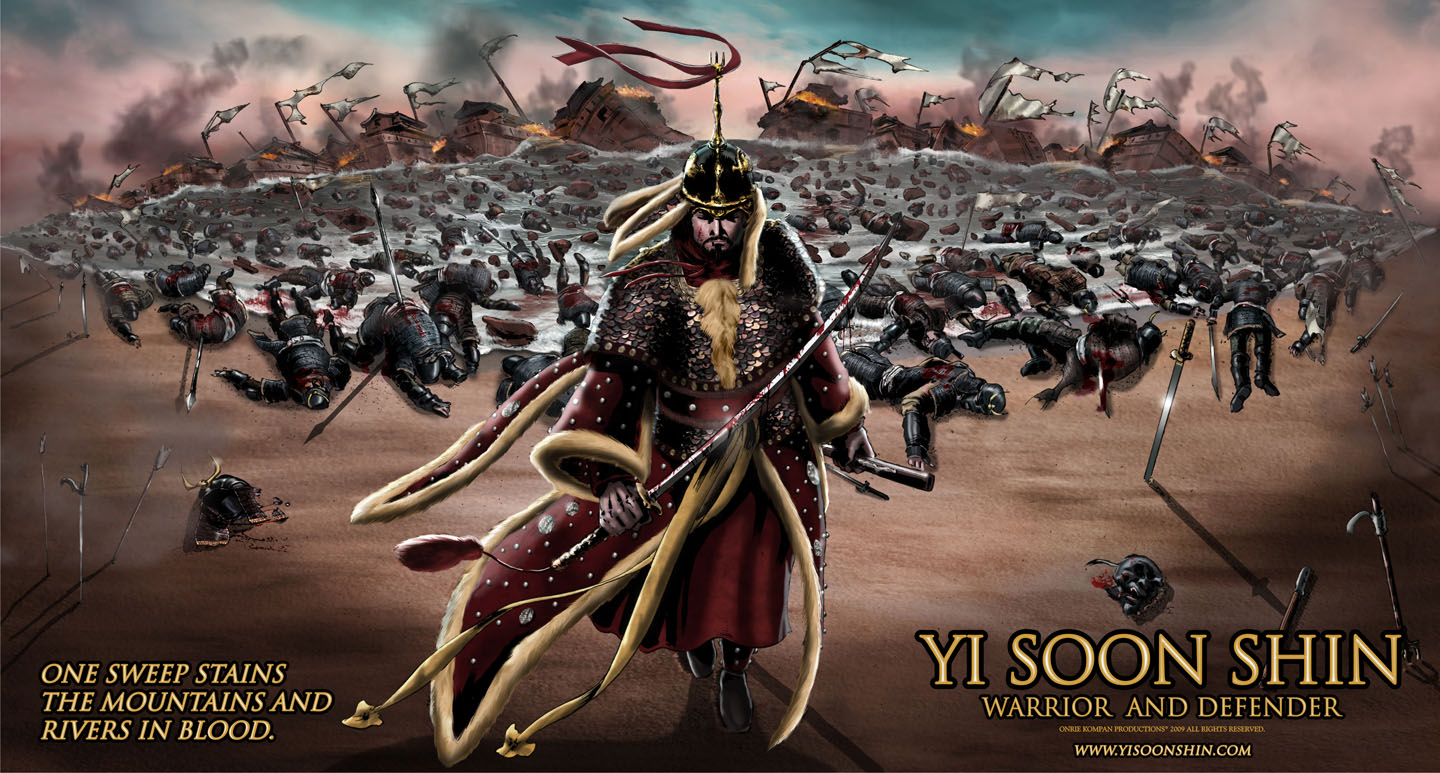
A new Spike Lee Joint starring Josh Brolin opens this week. To most people the buzz surrounding this film centers on their familiarity with Lee and Brolin, or perhaps Samuel L. Jackson as part of the supporting cast. Most casual movie goers are probably unaware of the 2003 Korean version (which itself was based on Japanese manga) that the 2013 film is a derivative of. The 2003 version is widely available in the US in the form of DVD/Blu-Ray versions as well as streaming services such as Netflix. It is my hope that the Spike Lee 2013 version will attract more attention to the original film as I think it is one of the top films made in the last decade. I am not alone in this sentiment as Oldboy currently stands at #81 all-time on the IMDB Top 250, and it ranks as the 11th best film made in the last decade. I encourage you to find out for yourself if this film is for you.
So what makes Oldboy so special? Oldboy is the second (and best) film in a thematic vengeance trilogy by director Park Chan-wook. When I first saw the film in the 2005 it was unlike your typical American film (and not one I ever thought could be made in the US). The character of Oh Dae-su played by Choi Min-sik carries the majority of the film. This is not to say the secondary characters are unimportant or poorly acted, it is simply praise to the visceral nature in which the title character is played out. Min-sik dominates the screen with his presence and intensity, the ordeal he endures has changed him, and what we see is a man on the edge of his primal nature. While the film has some extreme moments, Min-sik makes them all feel plausible as he is a man that has been pushed past the brink. Minor spoilers are ahead, but it is primarily limited to the opening 15 minutes of the film that set the premise of the movie.

We first see Oh Dae-su holding a stranger by the tie, preventing him from falling to his death. Oh Dae-su does not care about this man and whether he lives or dies, he needs human contact and someone to tell his story to. We flash back to when he was younger and being held for public drunkenness in a police station. It is also his daughter’s birthday and he shows off her picture and dances around clumsily wearing the wings he bought her as a gift. As this is our only glimpse of his character before, it is hard to judge the man he was, but we will soon see the man he will become. After being released to a friend he calls his daughter to wish her happy birthday. His friend loses sight of him in a crowd, and that would be the end of the life he once knew.
When we see Oh Dae-su next it is two months later and he is locked in a small hotel room. Through his narration we gain insight into his ordeal and how it has impacted his psyche. He wonders to himself if he knew in the beginning that he would be trapped in the room for fifteen years if it would have been easier or harder to endure. The camera cuts to a framed picture on the wall that mocks him as it reads “Laugh, and the world laughs with you, weep, and you weep alone”. He isn’t even allowed to kill himself as his captors save his life on multiple occasions just to prolong his imprisonment. As the fifteen years play out onscreen with the television as his only companion we see a man slowly losing his humanity. Not only does he have no idea why he has been imprisoned, he learns through the news that his wife has was murdered and he has been framed for it. Not knowing why he was there or who he had wronged consumes him, which essentially sets the stage for the remainder of the film. A montage of historical events takes the audience rapidly through his years of imprisonment. Finally after fifteen years, Oh Dae-su wakes up one morning in a new suit and is given a wallet full of cash, but not a single answer to the madness he has endured. We are now barely over 15 minutes into the film and we have come full circle back to the man on the roof trying to commit suicide. Die later.

While I have only scratched the surface of the film, the remainder of Oldboy consists of Oh Dae-su’s efforts to find out why he was imprisoned and by whom. He is consumed by vengeance and no longer considers himself a man. “Even though I’m no better than a beast, don’t I have the right to live”. Yet after what he has been through, can he really live again? Can Oh Dae-su ever have any kind of a life beyond the vengeance he seeks? In the beginning moments of the film we learn the name Oh Dae-su means “getting through one day at a time”. For fifteen years that’s how he was forced to live his life and he no longer seems capable of living any other way. Upon release the first thing he wants to do is eat something that is alive, warning to all, an octopus was harmed in the making of this film. The octopus scene was less about a delicacy and more about his primal nature coming out as his world is now one of eat or be eaten and depravity is no longer a choice but a byproduct.
I would be remiss if I didn’t mention the hammer fight sequence. While it in itself is not crucial to the plot, it is a noteworthy scene that underscores the primitive and raw aggression that exudes from every pore of our protagonist. The facial expressions alone are worth the price of admission. I don’t want to continue too much further because the journey of Oh Dae-su and the choices he makes are really what the core of the film is about and they are ones that I strongly suggest you do not let get spoiled for yourself. While you may not agree with all of his actions or decisions it is hard to find fault with him given the shell of a man that he has become. What would you do to get any semblance of a life back? Is happiness or redemption even possible anymore for Oh Dae-su?
Without getting into specifics the conclusion of the original Oldboy is a powerful one that is hard pressed to not leave some type of lasting impression. Whether you like or dislike where the film goes, it is most definitely memorable. I hope the American version has the courage to stay true to the original film’s ending. If nothing else the remake will hopefully garner the original film new fans as it is certainly a film that more people should be aware of. While not for the squeamish, the Korean version is highly recommended.
Rewind review written by Tim Ballew.



